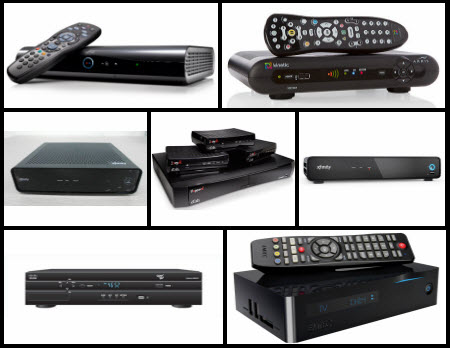For Set-Top Ads, an Unclear Picture
The smarter way to stay on top of the multichannel video marketplace. Sign up below.
You are now subscribed
Your newsletter sign-up was successful

Get complete coverage of the FCC's set-top proposal.
WASHINGTON — Federal Communications Commission chairman Tom Wheeler has taken a “not to worry” approach to some of the issues that are concerning cable operators and broadcasters about his new set-top box proposal.
Wheeler dismissed concerns from both groups when asked if his proposal to give third parties access to program information in cable set-top boxes meant that those third parties could replace or delete TV-advertising content — or repackage it, for instance, with new ads on an opening screen or channel guide with search-based advertisements, a la Google.
The rules ensure that such a scenario would not happen, Wheeler said. According to sources within and outside the FCC, in meetings before the proposal was made, the chairman’s office also assured concerned broadcasters that their ad-supported content would be protected.
MARKET WILL DECIDE
But when the text of the set-top box proposal was released, the introduction talked about proposing to leave “the treatment of advertising to marketplace forces,” as is the case with the current set-top regime.
That left at least one FCC source critical of Wheeler’s plan wondering just how much leeway the marketplace would have to monetize cable and broadcast programming in new ways.
The smarter way to stay on top of the multichannel video marketplace. Sign up below.
There is language in the section about what third parties — such as Internet-search giant Google or an app developer — would have to pledge to do to get access to set-top content. In addition to adhering to consumer-information privacy regulations and passing through emergency alerts, third parties would be required to “adhere to children’s programming advertising limits.” That’s in part because the FCC said it was concerned that navigation device developers “would violate advertising limits during programming for children.”
Either the FCC plans to make third parties, rather than programmers, responsible for making sure the content being repackaged through new guides and searches and devices meets children’s ad limits, or it appears to be anticipating that those third parties would be supplementing the children’s programming with advertising that might exceed those limits. The FCC source said that wording was troubling.
Broadcasters have tried to leverage the set-top proposal as another shot at cable operators, suggesting the FCC is right to look at the cost of boxes — rather than, say, retransmission-consent fees — as a driver of higher cable prices.
But one broadcaster source said station owners were also concerned about the FCC respecting their programming deals with cable operators, as well as with a company like Google having the ability to change a channel lineup or sell ads against broadcast programming without stations getting any cut of that new revenue.
The source said broadcasters had “heard all the right things” from the chairman’s office.
Attorney Paul Glist, a privacy expert and counsel to the National Cable & Telecommunications Association, told reporters in a conference call that Wheeler’s assurances about ad policies were not comforting. Such promises were effectively empty, he added, since they could not be monitored or enforced.
Google uses all of its access to information to monetize its ads, Glist said. In this case, he said, it would be doing so “without any compensation to the programmers.”
For all of the chairman’s mentions of what would not be permitted, he said, there were no restrictions on monetizing the search function.
A senior official said that the language about children’s advertising was related to issues raised about the placement of pop-up ads on Smart TVs in kids programming that the cable operator or broadcasters did not authorize or get to monetize, and the possibility that could happen on third-party navigation devices. The FCC currently has no rules that would prevent, say, a car company from striking a deal to place a pop-up ad on an LG Smart TV.
POP-UP AD CONCERNS
That would mean a third party could strike a similar deal for pop-up ads on the new set-tops that, for instance, Google could monetize. The FCC official said that is indeed the case, but the agency is aware of programmer concerns that could violate agreements about the branding and feel of their content. That’s why the Notice of Proposed Rulemaking asks if rules are necessary to prevent such ads and what the agency’s authority would be, the official said, adding the FCC was not ignoring programmer concerns.
No one has filed a complaint about Smart TV pop-up ads yet, the source noted, but that might be because they’re not yet prevalent.
The FCC’s proposal is just that. It asks a lot of questions about how the FCC should achieve the overall goal of promoting competition in navigation devices. If cable operators and broadcasters want to protect their ad models, they need to make sure Wheeler’s proposal explicitly backs up his assurances about protecting those models.
Contributing editor John Eggerton has been an editor and/or writer on media regulation, legislation and policy for over four decades, including covering the FCC, FTC, Congress, the major media trade associations, and the federal courts. In addition to Multichannel News and Broadcasting + Cable, his work has appeared in Radio World, TV Technology, TV Fax, This Week in Consumer Electronics, Variety and the Encyclopedia Britannica.

